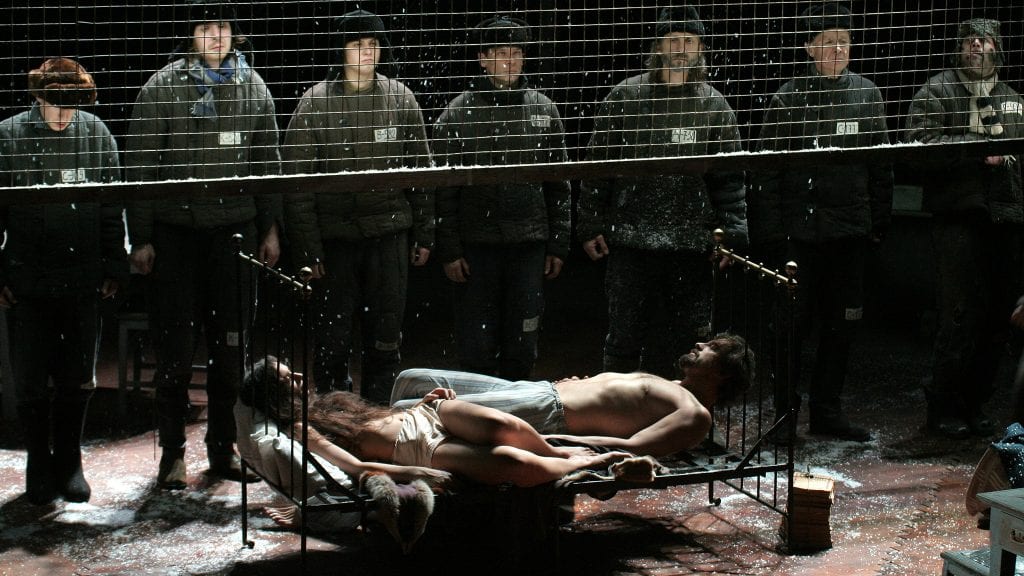A kaleidoscope of crisscrossing personal narratives that intersect and resonate with the unfolding of the life and fate of Jewish Soviet Scientist, Victor Shtrum, superbly performed by Sergey Kuryshev, and his family, during the war years and at the height of Stalin’s dictatorship, refracted through the tragedy of the Holocaust
Transposed from the eponymous novel, this is not theatre as one might expect. Rather it is a paradox of improvised form suffused with precision of content that remains loyal to the author and his work. The improvisation stems from the collective consensus developed between actors and director on how to give dramatic form to such a vast work with no cues from the author who did not intend this for the theatre.
The production of Life and Fate, considered by some the greatest Russian novel of the 20th century, is both emotionally absorbing and challenging. It succeeds in weaving the intricate personal lives of a Soviet family with the defining moments of the Soviet experience – revolution, war, morality and the Holocaust. Personal tragedies are refracted through the prism of national sacrifice and duty as we learn about the death of Lyuda Shtrum’s son Tolya from a previous marriage, who as a Soviet soldier is killed in the course of duty in defense of the motherland. Tolya’s father Abarchuk, though a committed communist is a political prisoner languishing in Stalin’s Gulag. As is Krymov, the husband of Lyuda Shtrum’s sister, Zhenya, who is incarcerated in the Lubyanka.
Life and Fate explores the relation between ideology and morality as told through its character’s struggles in love, loyalty, doubt and betrayal. Zhenya’s struggle regarding her loyalty and compassion for her ex husband Krymov that drives her to try and visit him in the Lubyanka coupled with her passionate love affair with a Red Army tank commander Novikov whom she puts at risk through her association with Krymov; Abarchuk’s nascent doubt shaking his faith in continued belief in the party; the lecture of the SS officer to a communist suggesting moral equivalence between the Nazi concentration camps and Stalin’s Gulags.
Through all this heartbreak and horror the vicissitudes of Victor Shtrum’s career as an ambitious and groundbreaking scientist are played out with great sensitivity and psychological perspicacity. The inner turmoil engendered by the moral dilemmas thrust upon him are vividly portrayed. We are witness to this struggle to remain loyal to one’s principles and preserve that inner integrity of the soul amidst the pressure of conflicting moral demands to do with personal ambition and family welfare.
But it is the elegiac soliloquy of Victor Shtrum’s mother, movingly depicted by Tatiana Sherstakova, victim of the Holocaust, both at the beginning and at the end of the production, that is so captivating and redeeming in its mournful meditation on love for her son while awaiting her brutal murder.
As a Russian production, the narrative is Russian, supported by well-projected subtitles that give linguistic meaning to a visceral emotionality that is superbly conveyed by the caste. The native Russian adds to the poignancy of the subject while the subtitles challenge the audience to greater heights of emotional engagement.

